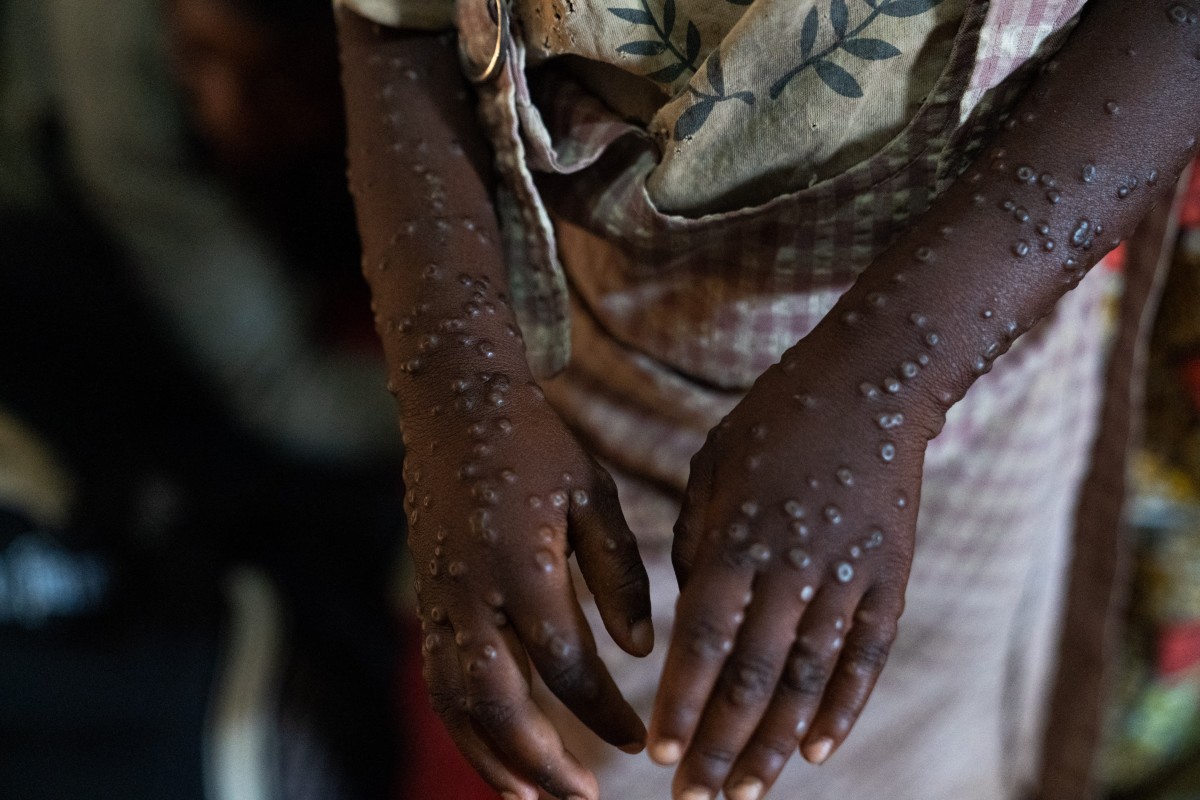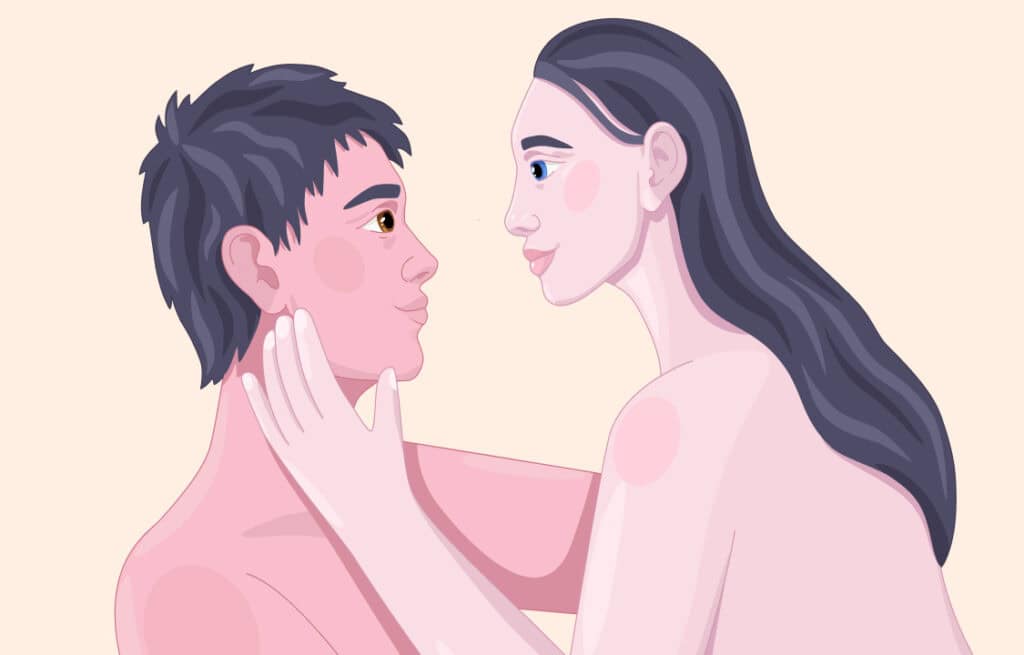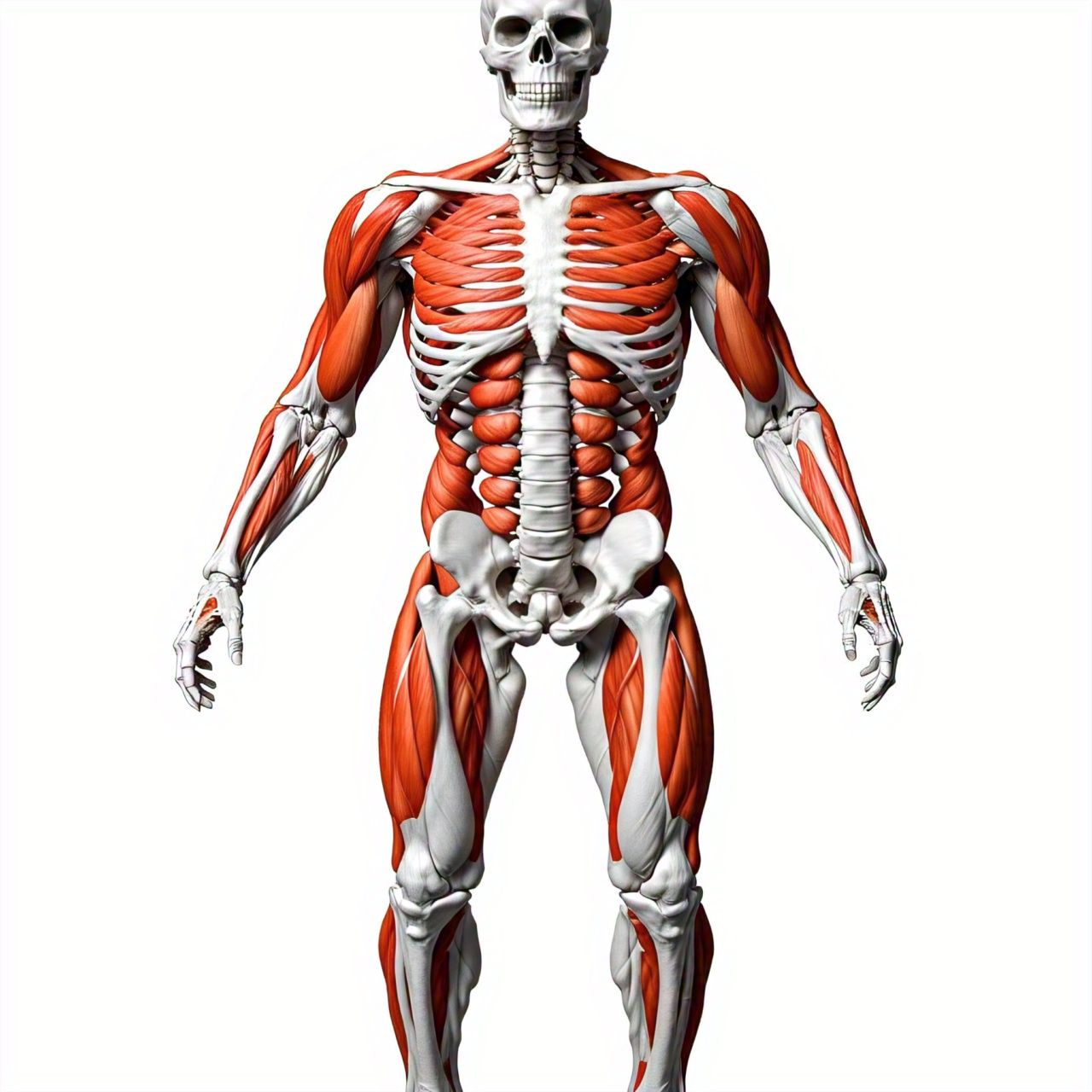Health
UK Reports Two New Mpox Cases

The UK Health Security Agency has announced two more instances of Clade Ib Mpox, raising the nationwide total to three cases.
These recent infections have been linked to individuals living with the original case, highlighting the virus’s ability to spread quickly in settings with close contact.
According to a statement released late Monday night and accessed from the UKHSA website on Tuesday, both patients are currently under specialized treatment at Guy’s and St Thomas’ NHS Foundation Trust in London.
Despite these occurrences, health authorities assert that the overall risk to the broader UK population is still considered low.
Chief Medical Adviser at UKHSA, Prof. Susan Hopkins, addressed the situation, stating, “Mpox is very infectious in households with close contact, and so it is not unexpected to see further cases within the same household. The overall risk to the UK population remains low.”
The agency has verified that thorough measures have been implemented, ensuring that all individuals who were in close contact with the confirmed cases are being tracked and observed.
“We are working with partners to make sure all contacts of the cases are identified and contacted to reduce the risk of further spread,” added Hopkins.
Individuals are being provided with testing and vaccinations, along with guidance on essential care if symptoms arise.
Health and Social Care Secretary, Wes Streeting praised the healthcare response, remarking, “I am extremely grateful to the healthcare professionals who are carrying out incredible work to support and care for the patients affected. The overall risk to the UK population currently remains low, and the government is working alongside UKHSA and the NHS to protect the public and prevent transmission.”
Streeting confirmed that the UK government is obtaining more vaccines and providing healthcare providers with the necessary resources and guidance to respond effectively.
Meanwhile, NHS national director for vaccination and screening, Steve Russell, reiterated the preparedness of health services: “The NHS is fully prepared to respond to the first confirmed case of this clade of mpox. Since mpox first became present in England, local services have pulled out all the stops to vaccinate those eligible, with tens of thousands in priority groups having already come forward to get protected. If required, the NHS has plans in place to expand the roll-out of vaccines quickly in line with supply.”
This follows the initial identification of Clade Ib mpox in the UK on October 30, 2024, representing the first occurrence of this variant in the nation.
The initial case involves a patient who had recently visited African nations with ongoing outbreaks and is currently receiving care at the High Consequence Infectious Diseases unit at the Royal Free Hospital.
“It is thanks to our surveillance that we have been able to detect this virus,” noted Hopkins.
“This is the first time we have detected this clade of mpox in the UK, though other cases have been confirmed abroad. We are working rapidly to trace close contacts and reduce the risk of any potential spread.”
UKHSA’s technical briefings and collaboration with international health organizations are integral components of a continuous approach to track and manage the outbreak.
As the public awaits further updates, health authorities urge vigilance. “While the risk of catching mpox in the UK remains low, it’s crucial to stay informed and seek medical guidance if symptoms, such as a rash or fever, appear,” emphasised Russell.
The statement indicates that the UKHSA’s active approach persists as they release technical updates and evaluate containment measures to safeguard the public during this changing scenario.
You may like
Health
Kissing: The Healthy Benefits of Smooching

Kissing is one of the most intimate and universal forms of human expression. Whether it’s a romantic kiss with a partner, a friendly peck on the cheek, or a familial smooch, kissing is an inherent part of human connection. But did you know that kissing also has numerous physical and mental health benefits? Here are some of the ways that kissing can be healthy for you:
Physical Health Benefits
- Boosts Immune System: Kissing can help to boost your immune system by increasing the production of antibodies, which fight off infections.
- Reduces Stress: Kissing can help to reduce stress and anxiety by releasing endorphins, also known as “feel-good” hormones.
- Lowers Blood Pressure: Regular kissing can help to lower blood pressure and reduce the risk of heart disease.
- Improves Oral Health: Kissing can help to improve oral health by increasing saliva production, which helps to wash away bacteria and food particles.
Mental Health Benefits
- Releases Oxytocin: Kissing releases oxytocin, often referred to as the “love hormone,” which promotes feelings of attachment and bonding.
- Reduces Depression: Kissing can help to reduce symptoms of depression by releasing endorphins and promoting feelings of happiness.
- Improves Self-Esteem: Kissing can help to improve self-esteem and confidence by releasing oxytocin and promoting feelings of attachment and affection.
- Promotes Intimacy: Kissing promotes intimacy and closeness, which is essential for building and maintaining healthy relationships.
The Science Behind Kissing
Kissing is a complex process that involves multiple senses, including sight, sound, touch, taste, and smell. When we kiss, our brains release a cocktail of neurotransmitters and hormones, including dopamine, serotonin, and oxytocin, which promote feelings of pleasure, attachment, and bonding.
Kissing is not just a romantic gesture; it also has numerous physical and mental health benefits. From boosting our immune system and reducing stress to promoting intimacy and improving self-esteem, kissing is an essential part of human connection and overall well-being. So, go ahead and pucker up – your body and mind will thank you.
Health
The Benefits of Soft Pillows: Why You Should Make the Switch

When it comes to getting a good night’s sleep, the right pillow can make all the difference. While some people prefer firm pillows, soft pillows have a number of benefits that can improve the quality of your sleep and overall comfort. Here are just a few reasons why soft pillows are better:
- Improved Sleep Quality
Soft pillows are designed to cradle the head and neck, providing the right amount of support and pressure relief. This can help improve the quality of your sleep by reducing tossing and turning, and promoting a deeper, more restful sleep.
- Reduced Neck and Back Pain
Firm pillows can sometimes cause strain on the neck and back, particularly if you sleep on your side. Soft pillows, on the other hand, are designed to conform to the shape of your head and neck, reducing pressure points and promoting proper spinal alignment.
- Increased Comfort
Let’s face it – soft pillows are just more comfortable than firm ones. They provide a luxurious, plush feel that can make you feel like you’re sleeping on a cloud.

- Allergy Relief
Some soft pillows are made from hypoallergenic materials that can help relieve allergy symptoms. Look for pillows made from materials like cotton, bamboo, or Tencel.
- Customizable Support
Soft pillows can be fluffed and adjusted to provide customizable support. This means you can adjust the pillow to fit your individual needs, whether you sleep on your side, back, or stomach.
- Durability
While soft pillows may not seem as durable as firm ones, many modern soft pillows are designed to last. Look for pillows made from high-quality materials that are designed to withstand repeated use.
- Aesthetics
Let’s not forget about aesthetics – soft pillows can add a touch of luxury and style to any bedroom. Look for pillows in soft, calming colors that complement your bedroom décor.
Soft pillows offer a number of benefits that can improve the quality of your sleep, reduce neck and back pain, and increase comfort. Whether you’re looking for a luxurious, plush feel or customizable support, soft pillows are definitely worth considering.
Health
Cancer Diagnosis: Death sentence or new perspective to life?

At 25 years and newly married, Mrs Elizabeth Awo-Ejeh was full of life and had her dreams of building a family while pursuing the career ahead of her.
However, in 2021, she discovered a lump in one of her breasts. To her, it was not anything to bother about since it did not hurt her, and neither was there any discharge from it.
During a visit to the hospital, the doctor even reassured her that the lump was nothing to worry about.
“However, deep down, I felt something was not right. Thankfully, my husband encouraged me to seek a second opinion.
“At the next hospital, the doctor recommended a breast ultrasound because I was only 24 at the time. The results showed that the lump was a Fibro Adenoma, a non-cancerous tumour.
“The doctor advised me to either remove it or wait six months to see if it would go away on its own and I chose to wait, but after six months, I began to feel sharp pain and noticed some discharge.
“I immediately knew something was wrong and went back to the hospital for another ultrasound. This time, the results showed the lump was suspicious for cancer,’’ she said.
According to her, after a biopsy, she was diagnosed with invasive ductal carcinoma, Estrogen Receptors and Progesterone Receptors-positive.
“At just 25, newly married and with dreams of starting a family and building my career, I felt my world fall apart,” she narrated.
Like many, Awo-Ejeh believed cancer diagnosis to be a death sentence. But her perception has changed since medical experts convinced her that it can be treated.
According to her, she was referred to a hospital for treatment, where she underwent eight sessions of chemotherapy, a mastectomy to remove the affected breast and 25 sessions of radiation.
“With God’s help, I am now in remission. Since the cancer is hormone receptor-positive, I have been on hormone therapy for five years, taking medication daily to prevent a recurrence.
“Cancer is highly treatable, especially when detected early, which is why I am sharing my story,” she said.
For Mrs Mariam Salami, before her diagnosis, she lived an unhealthy lifestyle, often prioritising convenience and comfort over well-being.
She said her diet was filled with processed foods, high in sugar and unhealthy fats, with minimal intake of healthy diet.
However, getting diagnosed with cancer was something she was completely unprepared for.
“The news hit me like a wave, leaving me feeling heartbroken, shocked, and overwhelmed. I was consumed by sadness and a deep sense of fear.
“Questions flooded my mind as I tried to make sense of it all, wondering how this could have happened and what I could have done differently.
“It felt like my world had been turned upside down in an instant, and I was left grappling with uncertainty, struggling to find the strength to face what lay ahead,” she said.
Salami said that her experience during treatment was filled with immense pain and anguish, with every step testing her strength in ways she never imagined, leaving her physically and emotionally drained.
However, through it all, the support she received from her spouse, family, friends and colleagues strengthened her throughout the treatment.
The World Health Organisation (WHO) describes cancer as a large group of diseases that can start in almost any organ or tissue of the body.
It happens when abnormal cells grow uncontrollably beyond their usual boundaries to invade adjoining parts of the body and/or spread to other organs.
WHO also said cancer was the second leading cause of death globally, accounting for an estimated 9.6 million deaths, or one in six deaths, as at 2018.
According to data from the Global Cancer Observatory (GLOBOCAN), Nigeria recorded 127,763 new cancer cases in 2022.
The consequence is 79,542 deaths from breast cancer, prostate and cervix uterias the top leading cancers in the country.
The Federal Ministry of Health and Social Welfare says there was no actual data on the number of cancer survivors in the country as the nation just recently began to collect data on cancer survivors.
According to Dr Uchechukwu Nwokwu, the National Coordinator, National Cancer Control Programme the ministry before now, the data collected from hospitals on survivors and have not been captured in the Cancer Registry (CANREG) software.
He said what was captured were diagnosis, age and the type of cancer, but that in the current strategic plan, survivorship now stands as an area of interest.
However, based on the programmes implemented by the Federal Government through the ministry, such as the Cancer Access Partnership Programme (CAPP) and the Cancer Health Fund (CHF), data on those who have accessed the programme exists.
“Those we refer to as “survivors” in cancer management are those who have lived with the disease or have managed it and survived for five years. We consider them as having survived the disease.
“This is because most cancers are not curable. About 40 per cent are actually curable, but majority, about 46 per cent are not curable.”
According to Nwokwu, about 6,000 cancer patients have accessed CAPP.
“For those who have commenced therapy after diagnosis, we can confidently say based on our experience that 50 per cent of them survive the disease.”
He, however, said that the major challenge that has affected survivorship of the disease was late diagnosis and commencement of treatment.
Speaking no why the disease does not pose a death threat as it did before, Dr Hannatu Ayuba, said this was because there were now advancements in the management of cancer in all the different modalities of treatment.
Ayuba is a Radiation and Clinical Oncologist at the National Hospital, Abuja.
She cited with early detection as one of the factors, adding that there were also improved screening methods and more sensitive biomarkers that make it easy to detect the disease before it manifests.
She also said there are more improved surgical techniques such as minimally invasive surgeries and robotic surgeries which are highly precise.
“There have also been advancements in radiation therapy by the use of highly targeted treatments, intensely modulated radiation treatment, stereotactic body radiation and stereotactic radio surgery.
“All these have benefits just like surgery when it’s done in very sensitive areas, protecting nearby critical structures.
“Also, there are more sensitive, more advanced therapies in radiation treatment like the proton therapy, and intensity modulated proton therapy and in the chemotherapy modality, there are more tailored regimens from clinical trials,” she said.
These, according to her, have brought out different and more effective patterns of targeted treatments that improve efficacy with reduced toxicity profiles.
Ayuba said in immunotherapy, there were special medications used to help improve the immune system to fight cancer cells.
She said in precision medicine, there was genetic profiling, molecular diagnostics, which guide and personalise treatment decisions for different diseases, giving some form of customised treatment for patients.
“There are more advanced, more effective medications for hormone therapy for certain tumors that are hormone sensitive like breast and prostate.
“We also have stem cell transplants. These are procedures that help to rebuild the immune system after high dose chemotherapy has been given for certain cancers that need such treatments” she said.
The oncologist said that all these have improved patient outcomes.
She said that presently, the practice in most of the nation’s tertiary hospitals where cancer is managed is the employment of more improved procedures in supportive care.
She said it also included the management of the side effects that patients go through, pain management and mental health in cancer survivors.
Prof. Muhammad Pate, Coordinating Minister of Health and Social Welfare, urged Nigerians to not be afraid about cancer as it was no longer an invitation to death.
This, he said, was because due to genomics, advances in the technology and precision medicine, there was the possibility that an increasing number of cancers will be curable.
He, however, said that it was not over yet, adding that even with technological advancements, cancer now stands as the fastest growing Non-Communicable Disease (NCD) in Nigeria.
Ms Gloria Orji-Nwajiogu, a two-time survivor of breast cancer and an advocate, cancer survivors need a lot of intervention to continue with their lives.
Orji-Nwajiogu, President of the Network of People Impacted by Cancer in Nigeria, said that the issue of stigma that accompanies the disease was worrisome.
“It’s not just about the treatment, we should think about the survivorship.
“Unfortunately that is one area that we have been lacking in Nigeria and that is because even some of the doctors do not believe that there can be cancer survivors in Nigeria so why do you need to make plans for them.
“I would want legislation so that a cancer patient, even after diagnosis, will not be laid off work. Many private-sector employers sack them, though hose in government employment are not usually affected,” she said.
Health
Constant sexual intercourse does not prevent prostate cancer– urologist

Dr Odezi Otobo, a Consultant Urologist says there is no medical or urological evidence that constant sexual intercourse and ejaculation reduce a man’s risk of contracting prostate cancer.
Otobo, who works with the University of Calabar Teaching Hospital (UCTH), said this at a medical outreach for men organised by Asi Ukpo Comprehensive Cancer Centre on Monday in Calabar.
The News Agency of Nigeria (NAN) reports that the outreach which was held at the premises of the Christian Central Chapel International (CCCI), Calabar, is part of programmes to commemorate “Movember.”
Movember, which involves growing of moustaches, is an annual event held in November to raise awareness of men’s health issues such as prostate cancer, testicular cancer and men’s mental health.
The urologist who was reacting to claims on social media that constant sexual activities and having multiple girlfriends could prevent prostate cancer, said the disease was either hereditary, caused by lifestyle or environment.
“Instead of taking unprofessional and unscientific advice from different quarters, it is important to visit a hospital if you notice anything and for those in their forties and fifties, get screened because early detection is key to effective treatment of cancer.
“Prostate cancer is an indolent cancer and can be handled when a man is aware, visit a medical facility and change his lifestyle, not by having multiple ‘side chicks,’ he said.
On his part, Mr Yegwa Ukpo, the Executive Director, Asi Ukpo Comprehensive Cancer Centre, said they had to commemorate Movember because men’s health issues were hardly addressed in the society.
Represented by Mrs Mercy Njoku, Event and Outreach Manager of the centre, Ukpo said there was something about masculinity in the society that made men thought they had to keep their issues to themselves.
“I want to appeal to the men to take their health seriously because cases of men slumping and dying in their forties and fifties are on the increase, we don’t want this to continue.
“Also, a lot of men engage in excessive intake of alcohol, others work all the time just to make ends meet without checking their livers, kidneys, hearts and even mental state, this is why we are insisting on this outreach which will be annually,” he said.
Similarly, Dr Saviour Eze, Head of Medical Team in CCCI said that they decided to partner with ASI Ukpo because the outreach specifically called out men to be attended to which was quite unusual in the society.
Eze said as a church, they recognised the fact that physical illnesses should be handled by those God had placed in the Medical profession to take care, even though they pray for God’s healing.
NAN also reports that the outreach which saw men screened for the function of their hearts, kidneys, livers and Prostate Specific Antigen (PSA) was in partnership with the Nigerian Medical Association (NMA), Rotary Club and,Pink Africa among others.
Health
Taking Care of a Wound: A Step-by-Step Guide

Taking care of a wound is crucial to promote healing, prevent infection, and minimize scarring. Whether you’ve cut yourself while cooking, suffered a minor injury, or undergone surgery, proper wound care is essential. In this article, we’ll provide a step-by-step guide on how to take care of a wound.
Step 1: Stop the Bleeding
If the wound is bleeding, apply gentle pressure to the area using a clean cloth or bandage for at least 5-10 minutes. Elevate the injured area above heart level to reduce blood flow.
Step 2: Clean the Wound
Rinse the wound with cool or lukewarm water and mild soap. Avoid using harsh soap, hydrogen peroxide, or iodine, as these can slow healing. Gently pat the area dry with a clean towel.
Step 3: Apply Antibiotic Ointment
Apply a thin layer of antibiotic ointment to the wound to help prevent infection. Look for ointments containing ingredients like neomycin or bacitracin.
Step 4: Cover the Wound
Cover the wound with a bandage or dressing to protect it from dirt, bacteria, and further injury. Choose a breathable dressing that allows for airflow and moisture transfer.
Step 5: Monitor and Maintain
Monitor the wound for signs of infection, such as redness, swelling, increased pain, or pus. Maintain good wound care by:
- Keeping the wound clean and dry
- Changing the dressing daily or as needed
- Applying antibiotic ointment as directed
- Avoiding picking at scabs or scratching the wound
Additional Tips:
- Avoid smoking, as it can slow healing and reduce blood flow to the wound.
- Keep the wound elevated to reduce swelling and promote healing.
- Avoid submerging the wound in water, such as taking a bath or swimming, until it’s fully healed.
- Consider taking supplements like vitamin C, zinc, or protein to support wound healing.
When to Seek Medical Attention
If you experience any of the following, seek medical attention:
- Increased redness, swelling, or pain around the wound
- Pus or discharge from the wound
- A foul odor from the wound
- Fever or chills
- Difficulty moving the affected area
- Wound not healing or showing signs of improvement after a few days
Taking care of a wound requires attention to detail, patience, and proper technique. By following these steps and tips, you can promote healing, prevent infection, and minimize scarring. Remember to seek medical attention if you experience any concerning symptoms or if the wound is not healing as expected.
Health
Health Talk on Low Blood Sugar: Causes, Symptoms, and Treatment

Low blood sugar, also known as hypoglycemia, is a condition where the level of glucose in the blood falls below normal. Glucose is an essential source of energy for the body, and low levels can cause a range of symptoms, from mild to severe.
Causes of Low Blood Sugar
Low blood sugar can be caused by a variety of factors, including:
- Medications: Certain medications, such as insulin and sulfonylureas, can cause low blood sugar as a side effect.
- Diabetes: People with diabetes are at risk of developing low blood sugar, especially if they take too much medication or skip meals.
- Skipping meals: Skipping meals or going too long without eating can cause low blood sugar.
- Excessive exercise: Engaging in strenuous exercise without adequate food intake can cause low blood sugar.
- Medical conditions: Certain medical conditions, such as kidney disease, liver disease, and hypothyroidism, can cause low blood sugar.
- Alcohol consumption: Drinking too much alcohol can cause low blood sugar.
Symptoms of Low Blood Sugar
The symptoms of low blood sugar can vary from person to person, but common symptoms include:
- Shakiness or tremors
- Dizziness or lightheadedness
- Confusion or disorientation
- Slurred speech
- Nausea or vomiting
- Rapid heartbeat
- Sweating
- Hunger or cravings for sweets
Treatment of Low Blood Sugar
If you suspect that you or someone else has low blood sugar, follow these steps:
- Check blood sugar levels: Use a glucometer to check blood sugar levels.
- Consume quick-acting carbohydrates: Eat or drink something that contains quick-acting carbohydrates, such as glucose tablets, fruit juice, or candy.
- Wait 15 minutes: Wait 15 minutes to see if symptoms improve.
- Seek medical attention: If symptoms do not improve or worsen, seek medical attention.
Prevention of Low Blood Sugar
To prevent low blood sugar, follow these tips:
- Eat regular meals: Eat three main meals and one or two snacks per day.
- Monitor blood sugar levels: Regularly check blood sugar levels to ensure they are within a healthy range.
- Take medications as directed: Take medications as directed by your healthcare provider.
- Avoid excessive exercise: Avoid engaging in strenuous exercise without adequate food intake.
- Stay hydrated: Drink plenty of water throughout the day.
Low blood sugar is a serious condition that requires prompt treatment. By understanding the causes, symptoms, and treatment of low blood sugar, you can take steps to prevent it and stay healthy. If you suspect that you or someone else has low blood sugar, follow the steps outlined above and seek medical attention if necessary.

2025: How To Plan A Budget For The Upcoming Year

Ruud van Nistelrooy Opens Up on Hurtful Manchester United Exit Before Taking Leicester City Job

Obasanjo would have died under Abacha if not for me -Gowon

Why I don’t trust any public institution in Nigeria – Fisayo Soyombo

Minimum Wage: Cross Rivers Workers to embark on indefinite strike

Bayer Leverkusen Forward Victor Boniface Faces Possible Sanction for Reckless Driving Incident

Radda approves N70,000 minimum wage for Katsina workers

PH refinery has not commenced bulk sales – NNPC

CBN issues Dec. 1, ultimatum against banks, ATM delays
